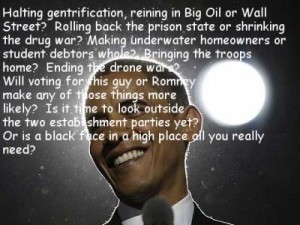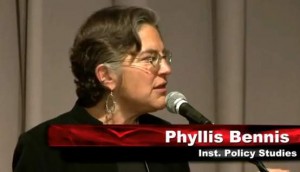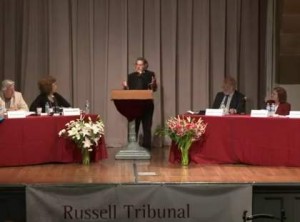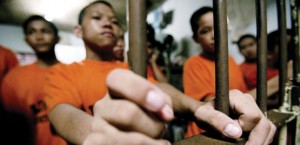Podcast: Play in new window | Download
Crisis In Syria Update: Black Agenda Report
Thousands of Syrians have died in the escalating conflict between forces loyal to President Bashar al-Assad and those that oppose his leadership. The vicious internal power struggles have forced tens of thousands of Syrian refugees into other countries including Turkey. This conflict could represent a threat to world peace according to UN based human rights groups.
- We have to see a global system that’s in crisis that has clearly decided that International Law, a body of international law that the United States had so much do with erecting after World War II.
- That body of International Law is no longer useful or tolerable to US empire.
- There is no international legitimacy as to what’s happening in Syria, which has now become a US model.
- It can gather in an ad hoc way any volunteer group of nations and pretend there is international legitimacy to the aggression that they mount.
- This time its against Syria, they’ve enlisted. They’re making a war, the NATO countries and gulf kingdoms against Syria.
- There is no concept here of inalienable rights of nations to run their own internal affairs.
- I believe the US saw the Arab Spring as a existential crisis.
- If they cannot achieve cleanly, the kind of regime change that they hope to achieve they do not hesitate to resort to the imposition of chaos.
- We’ve seen that in Africa for the last 50 years. That which we can’t directly control, we will through into chaos.
- They will be satisfied with years and years of chaos, and social disintegration and great loss of life.
- Muslim fundamentalism behaves very much like a nationalism.
- These jihadis have done the US a great service and they do know it.
- Despite the global financial crisis, and we’re still suffering from it unless we are banks, we do not have a political crisis.
- You only have a political crisis when there is effective resistance.
- When you have effective resistance then you have a conversation that is hostile to the order.
- Romney and Obama, there are no fundamental differences between these two people.
- We have these little dust ups off to the side made to look like arguments. The Republicans didn’t want modest taxes on the rich. That is all that separates them.
- Black America has historically been the point constituency for change in the United States.
- It is only with the passing on of this black president we’re going to see such a movement.
- The advent of a black in the White House has totally neutralized the black politic. It has short circuited our instinctive reactions to travesties wrought by power.
Guest – Glen Ford, founder of the Black Agenda Report and many other media forums. Ford was a founding member of the Washington chapter of the National Association of Black Journalists (NABJ); executive board member of the National Alliance of Third World Journalists (NATWJ); media specialist for the National Minority Purchasing Council; and has spoken at scores of colleges and universities.
—-
Russell Tribunal on Palestine: Phyllis Bennis
The final session of the Tribunal focused on the responsibility of the United States of America and the United Nations regarding the Israeli breaches of international law towards Palestine and Palestinians. There is now a situation in which Israel has achieved a status of immunity and impunity, facilitated by the US, despite its complete disregard for the norms and standards of international law. We hear an excerpt of a speech by Phyllis Bennis at the Russell Tribunal on Palestine.
Speaker – Phyllis Bennis, director of the New Internationalism Project at the Institute For Policy Studies. She is also a fellow of the Transnational Institute in Amsterdam. She has been a writer, analyst, and activist on Middle East and UN issues for many years. In 2001 she helped found and remains on the steering committee of the U.S. Campaign to End Israeli Occupation. She works closely with the United for Peace and Justice anti-war coalition, co-chairs the UN-based International Coordinating Network on Palestine, and since 2002 has played an active role in the growing global peace movement. She continues to serve as an adviser to several top UN officials on Middle East and UN democratization issues.
————–
Locking Away Children For Life Without Parole
The United States is the only country in the world that sentences children to life, without the possibility of parole. Last month, the US Supreme Court revisited the question of whether juveniles convicted of murder should be given mandatory life sentences without the possibility of parole. The Supreme Court had once ruled against imposing death sentences on juveniles and imposing life sentences on youth who aren’t convicted of murder. Currently, 2500 kids in jail are serving life sentences without parole in the US. 371 of those individuals are in Michigan prisons. Our next guest has been working on a lawsuit on behalf of 9 Michigan individuals who were sentenced to life in prison for crimes committed when they were minors and who are being denied the possibility of parole.
Attorney Deborah LaBelle:
- The concept that we’ve been talking about that these are children both under international law and US law for civil matters, children are different from adults.
- The Supreme Court seemed to readily grasp that, they weren’t speaking about juveniles or teenagers or young adults, they spoke continuously on what to do about children who are involved in homicide crime.
- The court had two cases in front of them, both involving 14 year olds, one in which the 14 did not commit a homicide, but convicted of either felony murder or aiding and abetting.
- That juvenile got mandatory life without possibility of parole, because the child was sentenced as an adult, the other case, the 14 year old actually committed the homicide.
- There is a handful of states, Michigan and I think 8 others who treat 17 year olds always as adults for all purposes in the criminal justice system.
- Under the 38 states, there’s a whole range, some you can only get life without parole, if you’re 16 and up, some allow it for 15, some states allow it for a child of any age, Michigan is one of them.
- One of the justices talked about that. Is there an age in which we would all share a collective cringe. What about a 5 year old, what about a 10 year old.
- The frontal lobe area of the brain that really addresses impulse control and long term consequences, and control issues of risk management, is developing through adolescence.
- People draw the age at different points, some say not til 19, some not til 23 as you say.
- There’s a bright line in civil law that’s been drawn in civil law that youth have a maturity that they can vote, when they can decide to leave school, when they can drink in some places, when they can drive.
- There are these bright lines.
- Every other country who has signed on to the conventions of the rights of the child which prohibits putting children in prison for life without possibility of parole explicitly has recognized that this practice is banned.
- The only other country that hasn’t signed on is Somalia and they don’t quite have a government right now to do that.
- We stand alone in not adhering to that convention on the rights of the child as well as we stand alone on approving this sentence.
- We have over 2500 youth who are serving of life without any possibility of parole. About 70 percent are children of color. A third of them, did not commit homicides.
- No one is arguing that there might not be circumstances, that a state couldn’t decide upon review that child couldn’t be released. What the argument is, you can’t keep them in there without any hope. You have to give them an opportunity to demonstrate upon maturation that they have been rehabilitated and they aren’t a threat to public safety.
- We should think of putting children in places where we can nurture, council and believe in their rehabilitation and give them a second chance.
- I read transcript after transcript of judges saying, – listen I don’t want to do this to this 14 or 16 year old, but I don’t have any choice. What is the value of putting a child away with no hope. It’s certainly not a public safety issue, because that can be addressed by the state by having parole or review hearings.
Guest – Attorney Deborah LaBelle, an attorney with the ACLU of Michigan’s Juvenile Life Without Parole Initiative.
—————————————–





